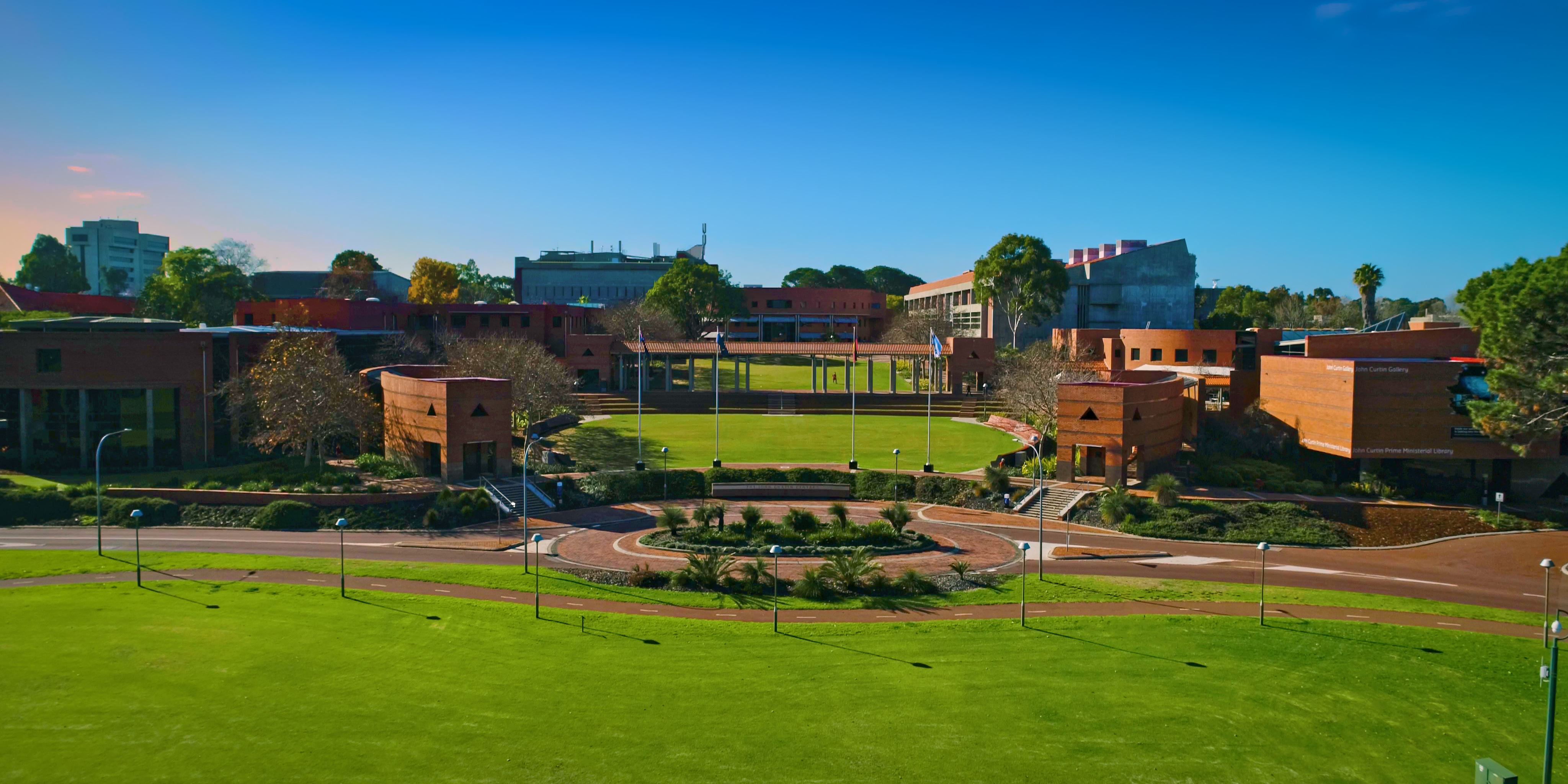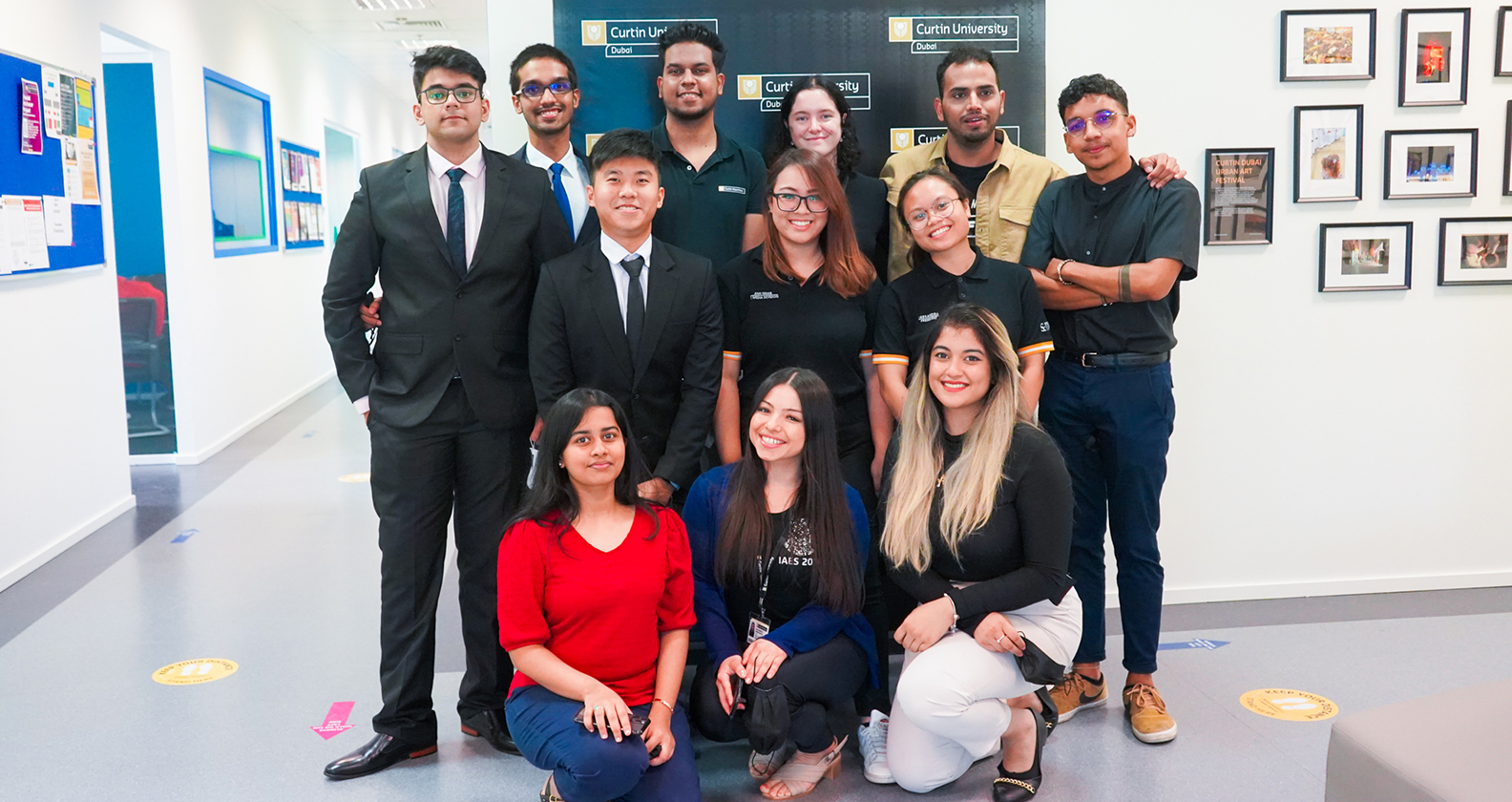New technology revives patchouli industry in Aceh, Indonesia
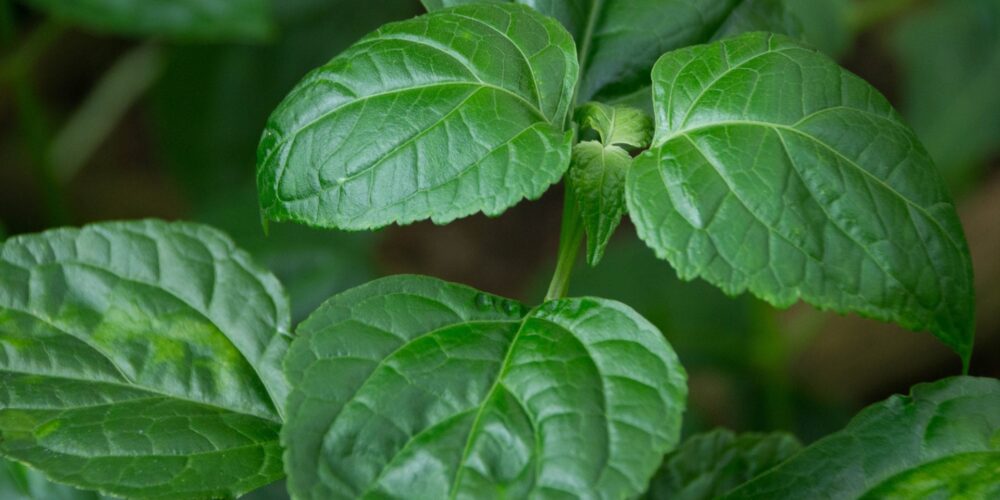
Syaifullah Muhammad is a chemical engineering alumnus who has developed an innovative technology to extract high-quality patchouli oil from the patchouli plant.
Patchouli oil is considered one of the best essential oils in the world. Prized for its fragrance, versatility and health benefits, patchouli oil is used in perfumes, cosmetics, aromatherapy and insecticides. Its high fixation strength also makes it one of the few essential oils that cannot be synthesised in a laboratory; it can only be extracted from patchouli leaves and stems through distillation.
Aceh Province in western Indonesia once supplied 70 per cent of the world’s patchouli oil (known locally as nilam). In recent decades, however, Aceh has been heavily impacted by civil conflict and natural disasters, and its patchouli industry has plummeted. Supply is now as low as 10 per cent, and distillation of the plant usually yields low quality oil, as farmers can’t afford modern distillation equipment or access to efficient cultivation practices.
Dr Syaifullah Muhammad is a Curtin chemical engineering alumnus and Head of the Atsiri Research Centre (ARC) at Syiah Kuala University in Aceh. Muhammad and his research team have developed a novel distillation method that is transforming patchouli production for the Aceh farming community.
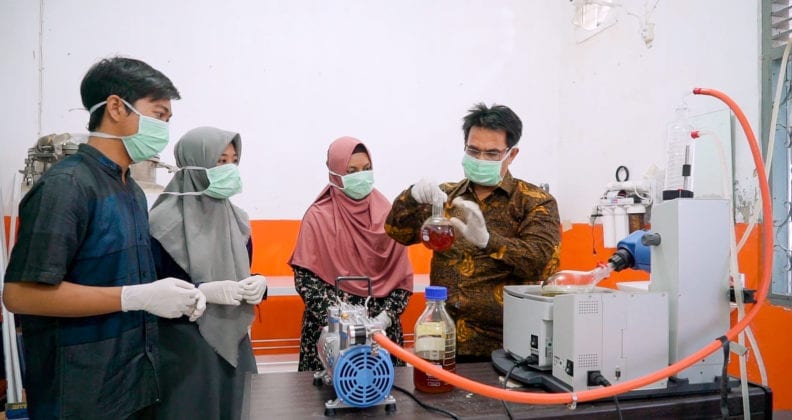
Traditionally, the farmers extract oil from patchouli plants via steam distillation. This method separates the oil from the leaves through evaporation, and the patchouli vapours are then condensed back into liquid form.
“Patchouli refining in Aceh is traditionally processed using iron drums and unclean river water, which results in low quality oil that is black and cloudy in appearance and contains many impurities,” Muhammad explains.
“It is also time consuming and requires a lot of energy to heat the drums to the right temperature for evaporation to occur.”
Muhammad’s technology increases patchouli oil production and quality in multiple ways. The farmers have been supplied with stainless steel drums for distilling, which helps prevent contamination and ensures the oil is clear and yellow in colour. Steam circulation has been added to the distillation process for more efficient extraction of patchouli oil. Muhammad has also introduced vacuum distillation with fractionation, which effectively enables higher concentrations of patchouli alcohol to be extracted at lower temperatures, making the distillation process quicker and more energy efficient.
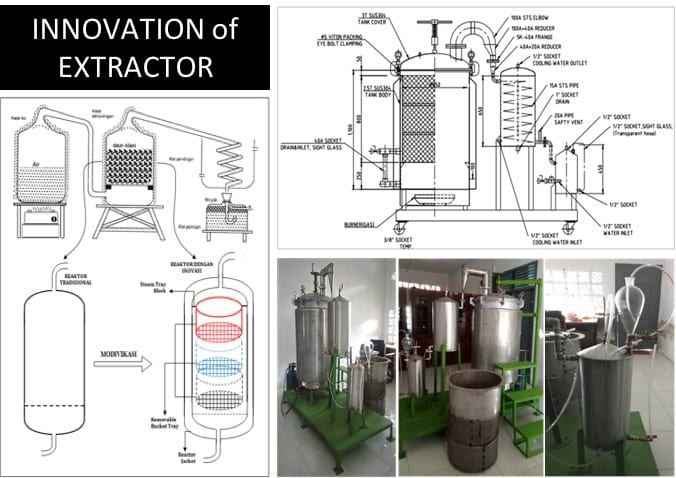
“In addition, traditional patchouli oil can also be further processed by adsorption [the adhesion of materials to a surface]. Adsorption can absorb iron and other impurities in the patchouli oil so that the purity of the oil increases and has higher alcohol content,” he says.
“With this new equipment, we can produce more than 3.4 per cent patchouli yield from raw materials compared with 2.5 per cent yield using traditional methods.”
Muhammad recently received funding from the Indonesian Ministry of Research to establish a Centre for Patchouli Innovation Cluster, which is uniting researchers from Syiah Kuala University, government organisations, industry and the Aceh farming community to build a thriving and stable patchouli market.
“The centre ensures the patchouli market in Aceh remains innovative and profitable. It supplies patchouli oil to an international market and features a local retail market where patchouli farmers can sell a range of their products in store and online,” Muhammad says.
“The centre teaches farmers about sustainable practices, such as permaculture and the use of organic fertilisers, biopesticides and the cultivation of quality seeds.
“It also features a nursery, a drying house, demonstration plot, laboratory and marketing unit, so farmers are involved in the whole commercialisation process.”

Muhammad says he is humbled to be able to give back to his community, and hopes more industry and community partners will become involved in the centre.
“I’m very happy to be able to do something good and innovative for our community, but there is still a lot more work to be done.”
Curtin recognised Dr Muhammad’s contributions to the Aceh patchouli industry by awarding him the Innovation Award at this year’s Curtin University Alumni Achievement Awards.

